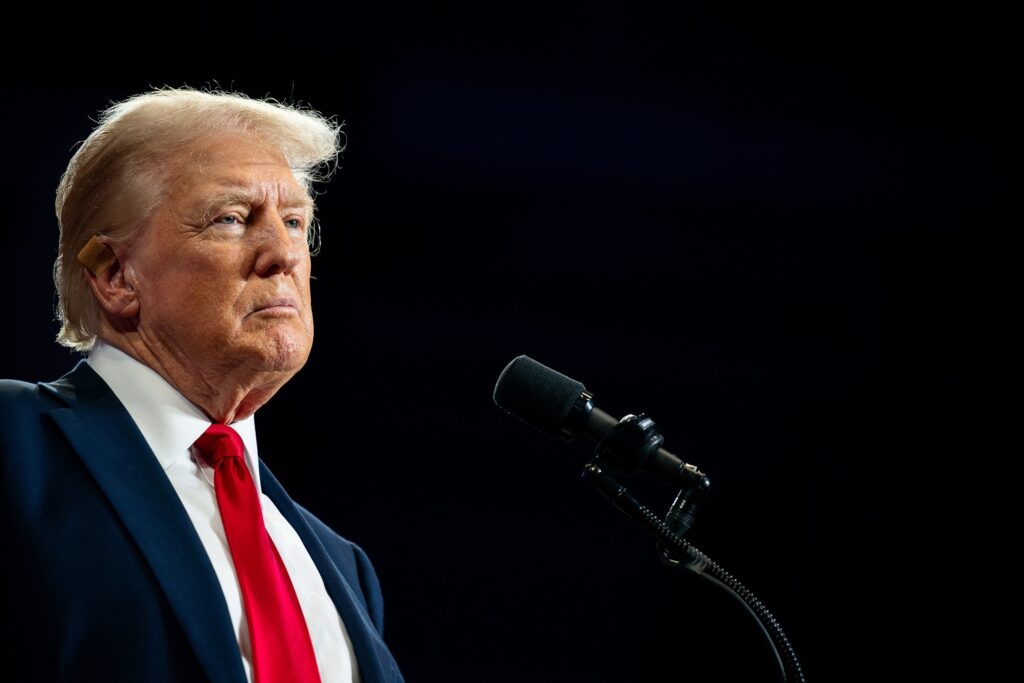
JIM GARAMONE
The United States military is the strongest and most effective fighting force in the world today, but the Chinese Communist Party’s Peoples’ Liberation Army has made tremendous strides and has publicly stated it wants to equal or surpass the U.S. force by 2040, the chairman of the Joint Chiefs of Staff said today in Washington.
Army Gen. Mark Milley told the Wall Street Journal’s CEO Council Summit that China wants to change the international rules-based architecture that has prevented a great power war since the end of World War II.
Spotlight: Commemorating World War IIHe told the group of CEOs that President Xi Jinping said in a speech that he wanted China to achieve parity with the United States regionally by 2027 and to reach parity or superiority with the U.S. military by 2040.
“That’s an aspiration,” Milley said to Gerald Seib, the Journal’s executive Washington editor. “We’re not going to stay still.”
China has grown its economy incredibly since 1979. The PLA has been a beneficiary of that growth. China has gone from a peasant-based, infantry army in 1979, “and they’ve developed a joint force in all of the domains in space and cyber in the traditional domains of land, sea and air,” Milley said. “And they’ve modernized it. So they now have a very, very good capability. They have good capacity.”
The Chinese are developing a blue-water Navy, they are building fifth generation aircraft, they are developing submarine forces and they have built aircraft carriers. “They’re moving and they’re developing their capabilities,” he said.
Milley said an academic term for China would be “a rising revisionist power.” China wants to revise the international rules-based order — primarily engineered by the United States and other Western powers in 1944-45.
“China doesn’t necessarily like all those rules, they don’t want to blow them up, so they’re not revolutionary,” the chairman said. “They don’t want to overturn them. But they do want to revise them to their own economic and political and diplomatic advantage. That presents a problem in geopolitics, it’s a big problem with a rising power, and a status quo power like the United States.”
All this is complicated by the changes going on in the world. The Cold War was a bipolar world. Today, the world is at least “tripolar” or maybe more, the general said. “We’re going into a world that is more complex, strategically, with a lot more variables,” he said. “And we’re entering into a world in which technology is advancing at a rate and a speed that has never been seen before in human history. So it’s much more complex, potentially more unstable. And it’s going to take a significant amount of very, very competent, mature leadership to navigate our way through.”
One complication is the character of war itself is changing. “The nature of war is immutable, or at least people think it is because it involves human beings. It involves friction and fear and violence, politics,” Milley said. “The character of war changes. Frequently, oftentimes, by technologies, sometimes by demographics or politics.”
The character of war deals with how to fight, the doctrine used, the weapons and the technologies employed. The last great shift in the character of war was between World War I and World War II with the introduction of mechanization, radar, radios, the airplane and more. “We’re living through … one of the most fundamental changes in the character of war in recorded history.”
The ability to see and sense today is unprecedented in human history. The number of electronic devices in the room he was speaking in was proof of that point. “A technologically advanced society can track exactly who you are, where you are, in exactly the room and so on, so forth,” he said. “Our ability to hit with long range precision fires is unprecedented. We can strike anywhere on the globe, at very, very refined levels of accuracy.”
Add to these capabilities artificial intelligence and it will revolutionize warfare. “The country, the nation state, or the entity that masters artificial intelligence and integrates it into military operations, combines it with robotics, combines it with the ability to sense and see, combines with the ability to hit, is going to have an extraordinary advantage, at least in the opening rounds of an armed conflict.”
It’s incumbent upon the United States to develop these capabilities rapidly, because that will provide a new type of deterrence.
Earlier in the day, Milley spoke with World War II veterans at the Sheraton Hotel just up the hill from the Pentagon. The veterans were in town to mark the 80th anniversary of the attack on Pearl Harbor and America’s entry into World War II.
The rules-based architecture has prevented great power war since 1945. Milley doesn’t mind competition with China or anyone else, but he does not want this to degenerate into a great power war. “What we want is to keep it a great power competition, because you don’t want great power war,” he said.
All war is horrific, he said, but a great power war is unbelievably destructive. He noted that between 1914 and 1945, 150 million people were killed in great power wars. “Think about that,” he said to the CEOs. “Some 26,000 Americans died from hitting the beaches at Normandy, to the liberation of Paris. That was just one campaign.”
“Great power war is horrible,” he reiterated. “We want to keep it a great power competition, and not get into great power war. And the way to do that is through deterrence. The way to do that is to have a very capable military, and demonstrate the will to use that if necessary to deter any opponent.”
The post Deterrence Ensures Great Power Competition Doesn’t Become War, Milley Says appeared first on The Frontier Post.






